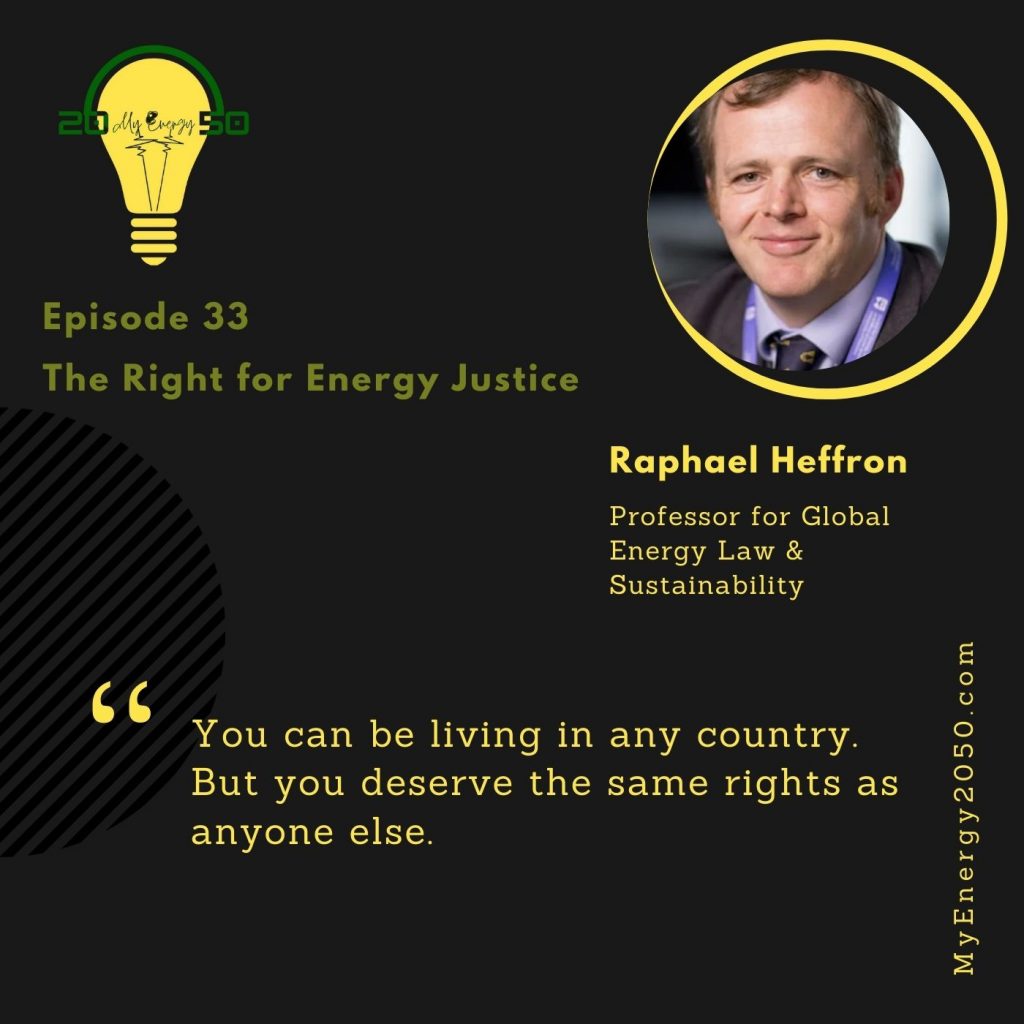This week we speak with Raphael Heffron, Professor for Global Energy Law & Sustainability at the Centre for Energy, Petroleum and Mineral Law and Policy at the University of Dundee. He is well known for his publications on energy justice.
In October Palgrave Macmillan will be publishing his book, The Challenge for Energy Justice, Correcting Human Rights Abuses. I didn’t know this when asking him about the podcast, but we are treated to a sneak peek into how he is outlining the connection between respect and fulfillment of Human Rights and the energy transition.
Our discussion first addresses the shifts and importance of energy law. Raphael describes how oil and gas law shifted from focusing on building projects to now considering decommissioning of assets. Economic development is viewed both as delivering on societal goals, but not through fossil fuels. In fact, Raphael draws on research to make the point that fossil fuels increase inequity in society, and do not deliver a fair and just transition.
We have an in-depth discussion on the normative framings of law and energy justice being rooted in the historical evolution of fossil fuels, from safety issues to child welfare – all still relevant today.

For those listeners not knowledgeable in the area of energy law or justice, I suggest sticking with us through this discussion, as we do break down what normativism is and how it works in the legal system. The normative stance is connected to universal human rights being respected regardless of where an individual lives.
Raphael is truly a leading thinker on the topic of energy law and justice. He provides us with an in-depth and well-thought-out framing of energy justice. A just energy transition is now in the policy lexicon, but as Raphael describes, there is a strong historical grounding of energy justice in legal framings which enable and require governments to respect human rights. Governments need to assert their responsibility to deliver energy technologies that are clean and provide access to all citizens.
Links:
Dr. Michael LaBelle is an associate professor at Central European University in the Department of Environmental Sciences. He produces the My Energy 2050 podcast to change how we communicate and improve the energy transition.
